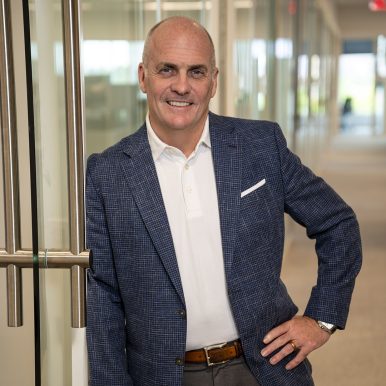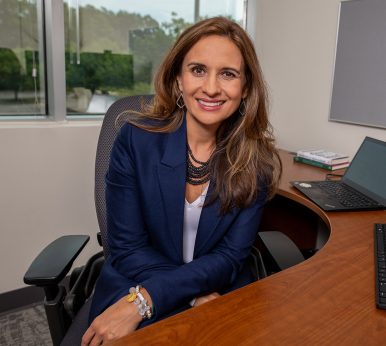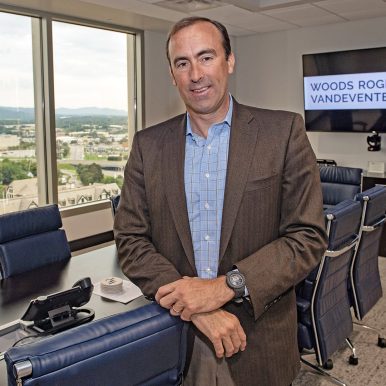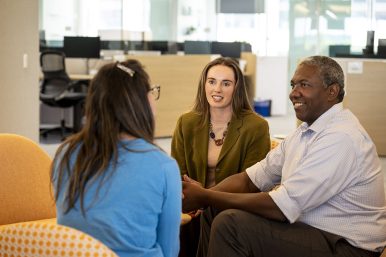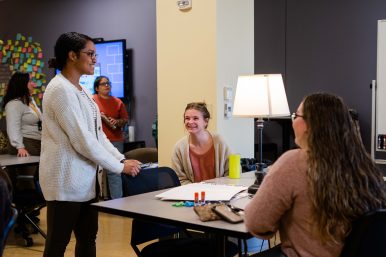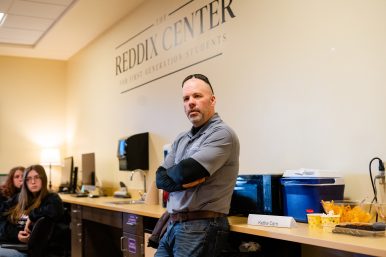CENTRAL VIRGINIA
Richmond-based convenience store giant Arko‘s revenue for the second quarter fell 3%, $2.47 billion from last year’s total, despite a 21% jump in total gallons of gasoline and diesel sold and a 12% increase in merchandise sales. According to Arko, its margin on gasoline and diesel — the difference between the price it sold fuel for and what it paid for those gallons — fell to 26.5 cents a gallon from 27 cents. The war in Ukraine led to higher fuel margins for the company last year; inflation caused merchandise prices to increase and the company has increased employee wages. Arko is the sixth largest convenience store chain in the United States. (Richmond Times-Dispatch)
Richmond-based Atlantic Union Bankshares, the parent company of Atlantic Union Bank, announced July 25 that it plans to buy Danville-based American National Bankshares, the holding company of American National Bank and Trust, creating a combined bank with about $23.7 billion in total assets. The deal is expected to close in the first quarter of 2024. Atlantic Union CEO John Asbury said the bank will assess staffing and branches but could not say how many American National jobs could be cut. American National has 26 branches in Virginia and North Carolina and is Virginia’s ninth largest bank. Atlantic Union is the largest community bank headquartered in Virginia, with 109 branches. (VirginiaBusiness.com)
Henrico County-based Berkley Insurance will invest $6.2 million to expand its office in the county’s Innsbrook area, with plans to create 72 jobs, Gov. Glenn Youngkin announced Aug. 10. A subsidiary of Connecticut-based Fortune 500 company W. R. Berkley Corp., the firm will lease an additional 8,920 square feet of office space to accommodate growth in its Berkley Aspire, Berkley Mid-Atlantic Insurance Group and Verus Specialty Insurance businesses. The new jobs will include underwriters, financial analysts, accountants and C-suite positions. More than 177 employees are currently based in the Henrico office. (VirginiaBusiness.com)
The last Avelo Airlines flight between Charlottesville-Albemarle Airport (CHO) and Orlando International Airport will be Sept. 4. Launched in May, Avelo offered one round trip each Friday and Monday. The airline said CHO had not generated expected demand. Allegiant Air previously provided an Orlando flight from Charlottesville until 2014. In April, American Airlines began providing service from CHO to Philadelphia, and in August, United Airlines began providing service to Chicago. (The Daily Progress)
North Chesterfield-based plastic films maker Tredegar is shutting down its technical center in Henrico County by December. The move was announced in an earnings report that showed the company reported a loss of $18.9 million in its second quarter. Sales volume declined to 35.5 million pounds during the period from 49 million pounds in the second quarter last year. The earnings report also showed net sales from its semiconductor film operation, supported by the technical center, decreased 49.3% between the two quarters. The closure is expected to save $3.4 million annually; future research and development will be performed at a facility in Pottsville, Pennsylvania. (Richmond Times-Dispatch)
PEOPLE
Bon Secours named John Emery president of Memorial Regional Medical Center in Mechanicsville and Rappahannock General Hospital in Kilmarnock, effective Aug. 1. Emery previously served as president of the hospital system’s Southside Medical Center in Petersburg and Southern Virginia Medical Center in Emporia. Emery will be responsible for the operational success of the two hospitals while focusing on patient care. Bon Secours is seeking to build a new standalone $17 million emergency room near Ashland in Hanover County. Emery joined the health system in 2020 when Bon Secours acquired Southside Medical Center and Southern Virginia Medical Center from Tennessee-based Community Health Systems. (VirginiaBusiness.com)
EASTERN VIRGINIA
A vacant lot near Naval Air Station Oceana owned by Sen. Bill DeSteph could become a temporary laydown area for Dominion Energy‘s $9.8 billion wind farm project off Virginia Beach. London Bridge Development, a limited liability corporation owned by DeSteph, requested a conditional use permit from Virginia Beach for a bulk storage yard on London Bridge Road. The 18-acre site was previously home to London Bridge Commerce Center, since torn down. The Virginia Conflict of Interest and Ethics Advisory Council concluded that DeSteph does not have a conflict of interest because the lease with Dominion is not going through the state’s legislative process. (The Virginian-Pilot)
The developers of the planned HeadWaters Resort and Casino said they received contradictory guidance from Norfolk officials on plans to move forward with the project, leading them to pull a development application from city review in July. The city laid out an approval process for a two-phase construction approach in a March letter, but a July 14 letter says the current agreement would not allow for such a plan. In mid-June, HeadWaters released new renderings outlining plans to build the casino and resort complex in two phases. The plans had been set for a second review by the Architectural Review Board and the Planning Commission in late July, but the developers withdrew their application at the behest of the city. (The Virginian-Pilot)
Mid-Atlantic Women’s Care, a collective of more than 70 OB-GYN physicians in Hampton Roads, reached a mutual agreement with Anthem Blue Cross and Blue Shield, effective Aug. 1. The three-year contract allows the physicians group to remain in-network with Anthem, allowing about 35,000 patients to remain with their current health care providers without a disruption in coverage. The deal came after months of discussions between the insurer and the practice, as the previous contract was set to expire Aug. 1. (Suffolk News-Herald)
Venture X, a global coworking office space franchise, is entering the Hampton Roads market, with its first location coming to Summit Pointe in Chesapeake, Cushman & Wakefield | Thalhimer announced in late July. A Venture X franchisee has leased 18,543 square feet in the 555 Belaire office tower, a mixed-use development from a subsidiary of Dollar Tree. Under development since 2018, Summit Pointe includes Dollar Tree’s corporate headquarters, as well as the Mosaic, Vista and Helix apartment communities. Venture X’s project will include a build-out, officials say. (VirginiaBusiness.com)
The operator of the Virginia Beach Sports Center said it wants to renegotiate contract terms with the city to right the facility’s operating budget. Eastern Sports Management, which operates the $68 million building, owes several event promoters $259,000 for ticket sales, and the company requested $1.16 million from the city to pay promoters and replenish a reserve fund used to pay unanticipated operating costs. The sports center opened in 2020 and lost more than $2 million in its first two years of operation. However, 1.2 million people came to the facility in the past year. (The Virginian-Pilot)
PEOPLE
Virginia Beach-based chainsaw and outdoor power equipment manufacturer Stihl Inc. named a new president and CEO in July. Chris Keffer, senior vice president of sales and marketing, became the company’s new head in August, replacing Terry Horan, who was named to the company’s board of directors. Stihl is the largest subsidiary of the German Stihl Group and employs more than 1,900 workers in Virginia Beach. A spokesman told Virginia Business that Horan’s decision to step down was made in consultation with the company’s executive board and is part of its larger succession plan. Keffer joined Stihl in April 2022, after nearly two decades at Stanley Black & Decker. (VirginiaBusiness.com)
NORTHERN VIRGINIA
Arlington County-based Boeing said Aug. 7 that it aims to be ready to fly NASA astronauts with its Starliner capsule for the first time by March 2024, resetting its timeline after the company delayed two earlier launches. Its most recent launch, planned for this summer, was delayed due to issues with the spacecraft’s parachutes and a tape used in its assembly. Work to replace the tape was expected to be completed by September, with a parachute test drop planned for November. Because of delays and development cost overruns, Boeing says it has absorbed $1.5 billion in Starliner program overruns to date. (CNBC)
Leidos is raising revenue guidance due to a belief that supply chain disruptions won’t worsen, says new CEO Tom Bell, who started with the company in May and is setting a new direction for the Reston-based Fortune 500 government contractor. New 2023 financial guidance moved revenue predictions to between $14.9 billion and $15.2 billion, up from $14.7 billion and $15.1 billion, during an Aug. 1 earnings call. The company estimated profit margins to be slightly wider, expecting earnings between 10.1% and 10.5%. (Washington Business Journal)
On Aug. 1, federal contractor ManTech International signed an agreement to acquire Arlington County-based Definitive Logic in a deal that will add 330 employees to Herndon-based ManTech’s workforce. Definitive Logic provides digital transformation consulting services and technology to defense, Homeland Security and federal civilian agencies. Definitive Logic will maintain its Arlington office, and co-founder and CEO Paul Burke will lead the team and be part of ManTech’s growth and innovation organization. Financial terms of the deal were not disclosed. (VirginiaBusiness.com)
A new study from the Tysons Community Alliance reports the neighborhood is recovering well from the pandemic, thanks mostly to its evolution as more of a mixed-use place, especially through the addition of residential development. Based on anonymous foot traffic measured from cell phones, office activity in office-heavy Tysons recovered to about 77% of pre-pandemic levels as of May, roughly 7% better than Washington, D.C., per the report released Aug. 4. Tysons has really shined in its residential sector: The number of households calling Tysons home grew 6% between 2015 and 2018, and 19% between 2018 and 2021. (Washington Business Journal)
PEOPLE
In late August, Michal Lagunionek left his role as president and CEO of Lidl US, the Arlington-based United States branch of the German grocery chain. His successor is Joel Rampoldt, a Miami-based retail and wholesale consultant who also will be based in Arlington. Lagunionek was Lidl’s fourth U.S. chief executive since the German discount grocery chain established its headquarters in Arlington in 2017. The shift in leadership comes during a reorganization of Lidl’s headquarters and as the company in July closed 11 U.S. stores, including locations in Charlottesville and Henrico County. Lidl also opened a location in Lorton in July, and a new Leesburg store was approved. (VirginiaBusiness.com)
Microsoft‘s federal arm has new leadership after Rick Wagner left the company to pursue new opportunities. Wagner had run Microsoft Federal, based in Rosslyn, since 2020. Candice Ling succeeded Wagner as leader of Microsoft Federal, which is part of the team on the Pentagon’s $9 billion Joint Warfighting Cloud Capability Contract to build out cloud capabilities for the Department of Defense. Ling served as Microsoft Federal’s civilian vice president since October 2021. She joined Microsoft as a government industry leader in Asia in 2018. (VirginiaBusiness.com)
ROANOKE/NEW RIVER VALLEY
A request for a special-use permit needed for a proposed rubble landfill south of Christiansburg was withdrawn in July. Roanoke-based utilities and road builder E.C. Pace Co. sought the permit as part of plans to build a 115,000-cubic-yard rubble landfill on several acres of land belonging to James Tannahill. The land is located just southeast of Rosemary Road near the rural community of Oak Grove. The Montgomery County Planning Commission voted to not recommend the permit request to the county Board of Supervisors. The decision reflected the calls of many Rosemary Road residents, who spoke of concerns over traffic and potential environmental and health impacts. (The Roanoke Times)
Work on the Mountain Valley Pipeline project is allowed to continue after U.S. Supreme Court Chief Justice John Roberts in July lifted two stays, or pauses, imposed by a lower court in response to challenges from environmental groups. The lifting of the stays was issued while the Richmond-based U.S. 4th Circuit Court of Appeals was hearing oral arguments on whether provisions of the federal Fiscal Responsibility Act ordering the pipeline’s completion were constitutional. Initially approved in 2017, the pipeline has been embroiled for years in legal challenges. (Virginia Mercury)
Roanoke officials received a preliminary development plan in August to build a distribution center where a Deschutes brewery project fizzled a couple of years ago. The single-page filing puts the land that the craft beer company bought but never used back into play but not for a brewery, according to a city official. The plan depicts a distribution center served by a large number of vehicles that will add traffic to busy Orange Avenue. The user was unidentified, but the first three letters of Amazon.com‘s stock symbol — AMZ — appear on the plan. Amazon had no comment on the filing. (The Roanoke Times)
If giant turbines atop a Botetourt County mountain ever convert wind to electricity, it will not be until late 2025 — a decade after the Rocky Forge Wind project was first announced. Apex Clean Energy said in August it hopes to begin major construction of its proposed onshore wind farm in summer or fall 2024, with plans to complete it by the end of 2025. Earlier plans had called for work to begin this summer. A detailed site plan for the 13 turbines, each 643 feet tall, has yet to be approved by Botetourt’s community development department. (The Roanoke Times)
Virginia Tech in late July put an end to legacy preferences in admissions, announcing it would no longer favor children of alumni over other equally qualified applicants. It also said it would discontinue the option for applicants to apply via early decision. “Much of our recent success in attracting and graduating students from underrepresented minority and underserved backgrounds … has been achieved by lowering barriers to admissions,” President Tim Sands wrote in the statement. Virginia Tech was the second public institution and the fourth overall to axe the controversial practice of legacy preferences in the wake of the U.S. Supreme Court’s June 29 ruling against affirmative action. (Inside Higher Ed)
Wabtec is investing $2.7 million to expand its existing facility in Salem, adding 38 jobs, Gov. Glenn Youngkin announced in July. Headquartered in Pittsburgh, Wabtec provides equipment, systems, digital solutions and other services for freight and transit rail globally. The expansion will accommodate the relocation of its pneumatically controlled braking systems manufacturing lines within its Graham-White manufacturing facility in Salem. (VirginiaBusiness.com)
Buc-ee’s, the Texas-based travel center chain, applied for a special use permit for review and approval of a proposed sign plan in Rockingham County in late July. Expected to open in 2025, the site near Mount Crawford would feature a 74,000-square-foot Buc-ee’s store with 120 fueling positions and 24 electric vehicle charging stations. It would be the second Virginia Buc-ee’s location. The company says it plans to build four stores in the commonwealth, with the first slated to open in New Kent County by 2025. (VirginiaBusiness.com)
The Frederick County Board of Supervisors voted 6-1 to accept Eukarya Christian Academy‘s $300,000 bid for the former Robert E. Aylor Middle School on Aug. 9. RCS Investments was the sole bidder for the 23-acre property. The company’s owners have publicly stated their plan to convey the property to the nondenominational school; if RCS Investments does not convey the property to the academy within 18 months of the sale, it will revert to the county at its sale price. The property includes a 107,000-square-foot building that served as a school from 1969 to 2021, when the county school board declared it surplus and returned it to the county government. (The Northern Virginia Daily)
In mid-July, Harrisonburg City Council committed $200,000 in American Rescue Plan Act funds as the latest funding round in the Harrisonburg Business Recovery Grant program, which helps local businesses that struggled during the COVID-19 pandemic because of cost increases, revenue loss or other challenges. Including the approved $200,000, Harrisonburg’s city government has provided about $1.27 million in recovery funds to businesses. Businesses that received grants from the program in 2020 or 2021 or received a Harrisonburg Resilience Grant or Disaster Impact Loan in 2020 were not eligible for the current round of funding, for which applications were set to close on Aug. 31. (Daily News-Record)
The Rockingham County Board of Supervisors unanimously approved three rezoning requests related to a plan to revamp Massanutten Resort in its July 26 meeting. The resort plans to add a multiuse trail more than 5 miles long, workforce housing units and a senior living community to its facilities in a plan expected to take 15 to 20 years to complete. Massanutten Resort had worked with county staff on its development plans for six months, and the county Planning Commission had recommended approval of its requests earlier in July. (The Northern Virginia Daily)
The Twila and Larry Showalter Cancer Fund donated $19,000 to the Sentara RMH Hahn Cancer Center, Norfolk-based Sentara Health announced in early August. Twila Showalter, the wife of Integrity Insurance Group co-owner Larry Showalter, died from colon cancer in December 2017 at age 58, after receiving care at Sentara RMH Hahn Cancer Center for several years. Since 2018, the fund has raised $75,000 for the RMH Foundation’s Hope Fund for Cancer Care, which provides patients with funds on an individual basis. The Sentara center administers more than 19,000 treatments each year. (Daily News-Record)
On Aug. 8, Winchester City Council unanimously approved the allocation of more than $1.34 million in federal funds to revitalize part of the city’s North End and provide financial assistance to people struggling with housing expenses. The U.S. Department of Housing and Urban Development allocated the city $653,572 in Community Development Block Grant funds and $688,202 in Home Investment Partnerships Program revenues. The largest portion of funding — $603,545 of the CDBG funding — will go to the North Kent Street Revitalization Project, which primarily focuses on buying the Elks Lodge building and converting it into a community center. (The Winchester Star)
SOUTHERN VIRGINIA
Caesars Virginia‘s temporary Danville Casino brought in about $21.4 million in casino gaming revenue during July, up from nearly $19 million in June, according to figures released in August by the Virginia Lottery. Danville Casino, which is being operated while the permanent $650 million Caesars Virginia casino and resort is under construction, generated nearly $15.9 million in revenues from its 767 slot machines and about $5.5 million from its 25 table games. In July, Danville Casino came in just behind Rivers Casino Portsmouth, which generated about $22.3 million, and outperformed Hard Rock Bristol casino, which brought in about $13.5 million. (Danville Register & Bee)
In July, Danville released its first comprehensive regional tourism master plan, based on a year of extensive quantitative research and community input. The plan includes such assets as the $650 million Caesars Virginia casino resort expected to open in late 2024, the $85 million Dan River Falls project at the former White Mill and several notable breweries and vineyards. However, it also identifies weaknesses, including limited marketing efforts so far, skepticism among industry stakeholders about the region’s new tourism initiative, and limited lodging options for visitors. (Danville Register & Bee)
Halifax County supervisors in August approved an agreement with Mecklenburg Electric Cooperative subsidiary Empower Broadband and the Southside District Planning Commission to seek additional state funding for the expansion of fiber in Halifax County and nearby areas. Halifax is one of five counties, including Brunswick, Mecklenburg, Greensville and Charlotte, that are seeking a second Virginia Telecommunication Initiative grant to expand Empower’s regional fiber network. The project is expected to serve 1,943 households in Halifax County, and the county will contribute $325,000 in matching funds. (SoVaNow)
The Halifax County Industrial Development Authority in July approved a $4 million construction loan from American National Bank to renovate the shell building that houses the IperionX titanium recycling facility, now under development at the Southern Virginia Technology Park. Over the next three years, IperionX is projected to hire up to 108 employees at its South Boston facility, which will produce titanium powders and other metal products for a wide range of uses. (SoVaNow)
In a marathon Aug. 15 meeting, the Pittsylvania County Board of Supervisors — via two separate votes — paved the way to allow a 1,900-unit planned community on about 580 acres in the Axton area. Announced in May by Southside Investing, the project calls for a mix of single-family homes, town houses, apartments and facilities for seniors, including a dependent and assisted-living campus. The community would address the need for more area housing and, as many supervisors alluded to, would be used as an extra incentive to lure a major industry to the Southern Virginia Megasite at Berry Hill. Groundbreaking would be at least 18 months away due to required studies and permit applications. (Danville Register & Bee)
U.S. Sen. Mark Warner and co-sponsor U.S. Sen. Todd Young, R-Indiana, introduced legislation in July that permanently puts the motorsports industry on a level playing field with other entertainment facilities with regard to the tax code. The Motorsports Fairness and Permanency Act would make permanent a tax classification on depreciating assets for motorsports facilities and allow racing venues to plan improvements, make safety updates and bring in additional jobs. “As future investments in capital projects are considered here at Martinsville Speedway, this important legislation provides much-needed certainty not only for our facility, but motorsports facilities around the country,” said Clay Campbell, Martinsville Speedway president. A similar bill was introduced in the House of Representatives in April. (Martinsville Bulletin)
SOUTHWEST VIRGINIA
The Appalachian Regional Commission approved a $464,000 grant to Friends of Southwest Virginia on Aug. 11. The grant for the regional tourism organization will fund planning services, a staff position and two partner conferences seeking to develop projects in Virginia, North Carolina, Tennessee, Kentucky and West Virginia. Friends of Southwest Virginia Executive Director Kim Davis says the funding “will amplify [its] planning and multistate development initiatives.” The funding comes from ARC’s Appalachian Regional Initiative for Stronger Economies (ARISE), which promotes interstate collaboration in the Appalachian region. (The Coalfield Progress)
The United Way of Southwest Virginia received a $5 million grant from the state’s Industrial Revitalization Fund through the Town of Abingdon in early August. The grant will help pay for the construction of the UWSWVA’s Workforce Innovation and Childcare Center, for which the United Way chapter is converting an 87,000-square-foot former Kmart in Abingdon. Including the grant, which Gov. Glenn Youngkin’s office approved, UWSWVA has secured $19 million of the estimated $23 million required for the capital project. The center will have 300 child care slots, 100 child care jobs and a career simulation and exploration facility for K-12 students, among other initiatives. (News release; VirginiaBusiness.com)
The University of Virginia’s College at Wise has received $540,000 in donations from two foundations, the college announced Aug. 7. The Slemp Foundation donated $240,000, including $200,000 for the C. Bascom Slemp Experiential Learning Scholarship, which provides need-based scholarships to undergraduate U.Va. Wise students. Also included was $25,000 for the C. Bascom Slemp Summer Scholars Fund, which supports undergraduate research, and $15,000 for the Appalachian Writing Project Young Writers’ Camp. The Rapha Foundation donated $300,000 to U.Va. Wise to establish the endowed Rapha Foundation Nursing Fund supporting the nursing program and the Rapha Nursing Fund for Success to provide financial assistance to students preparing for the national licensing exam. (The Coalfield Progress)
The Virginia Coalfield Economic Development Authority awarded Oakwood-based Air Repair a $10,000 seed capital matching grant, the organization announced Aug. 9. Air Repair offers custom ductwork manufacturing and provides residential and commercial HVAC services in Buchanan, Dickenson, Russell and Tazewell counties. Air Repair owner Tony Owens opened the company in spring 2023 and has one employee in addition to himself. He expects to have six full-time employees within three years and plans to expand Air Repair’s service offerings, including the installation of whole-house generators. (Bristol Herald Courier)
Of the 16 projects that Gov. Glenn Youngkin recommended in August for a total of $7.3 million in Appalachian Regional Commission grants, 12 are in Southwest Virginia. One of the largest recommended grants for a Southwest Virginia project is $700,000 for renovations to the Barter Theatre in Abingdon. Theater officials plan to renovate Gilliam Stage in the larger, main theater and to renovate the Smith Theatre, the smaller theater across the street. Youngkin also recommended a $500,000 grant for Dickenson County’s Red Onion Industrial Park project. ARC will finalize project award approvals later this year. (Cardinal News)
PEOPLE
New People Bankshares President and CEO C. Todd Asbury will begin his transition to retirement in December, the Honaker-based bank holding company announced Aug. 7. Asbury assumed the role of president and CEO in December 2014. He will step down as the bank’s president and CEO on Dec. 1 but will remain the company’s president and CEO until May 31, 2024. He will serve as a senior adviser to the bank and company for an additional year and will serve on both boards of directors until at least May 2025. (Bristol Herald Courier)


